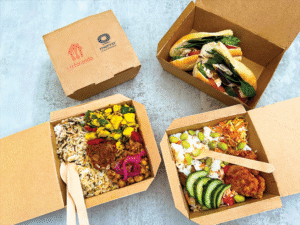Academics at the University of Birmingham are investigating how ‘community cooling hubs’ can help farming communities in India reduce food waste.
Sustainable cooling experts are working with India’s National Centre for Cold-Chain Development (NCCD) to develop the hubs, which will combine food cold chains with other services such as community health services, creches and emergency services.
The experts, which include researchers from the Birmingham Energy Institute and Heriot-Watt University in Edinburgh, say that creating the hubs will help remove barriers for subsistence farmers and provide local communities with access to other refrigeration-dependent services.
Toby Peters, professor in clean cold economy at the University of Birmingham, said: ‘In India, up to 40% of food is lost post-harvest because of lack of cold chain. We can’t address malnutrition and rural poverty without cold chains extending crop life and connecting farmers to markets.
‘We’re proposing a radical approach to cooling provision, where cold chains meet the wider community’s cooling needs in a clean, affordable and sustainable way. By aggregating demand to optimise system efficient energy and resource management and bundle multiple revenues streams, we can create a cohesive approach focused on the full range of society’s needs.
‘Cooling hubs could support farmers, whilst ensuring that communities have continuing access to life-saving medicines and properly cooled health facilities and community services.’
Effective refrigeration is essential to transport and preserve food, as well as other vital resources such as medicines.
The project will look at how temperature-controlled food packhouses could expand to meet other community cold-based needs, such as cooling community halls for use as a creche.
Those behind the project say that ‘community cooling hubs’ could also be used to host agricultural activities, such as processing milk into cheese and yoghurt, or to stock emergency supplies of blood and medicine.
Experts from the universities and Indian sector bodies will now work over 12 months with farming communities in the state of Maharashtra to develop the hubs as sustainable business units which can benefit local communities.
Professor Pawanexh Kohli, CEO of the NCCD, added: ‘Community cooling hubs take forward refrigeration from the immediate realm of cooling machines, into the dimension of collaborative technologies and models to drive a weightier wellbeing. NCCD is enthused to see domain experts coming together for such strategic development.’
The project follows the second annual global Clean Cooling Congress, hosted in London earlier this year by the University of Birmingham, the World Bank Group and the Department of Business Energy & Industrial Strategy (BEIS).
The demand for ‘clean cooling’ is set to boom over the coming years as the world’s population continues to grow and climate change causes global temperatures to rise.
Academics have warned that energy consumption from cooling – including air conditioning – could increase six-fold by 2050 unless current technologies and approaches are updated, adding to global warming.















